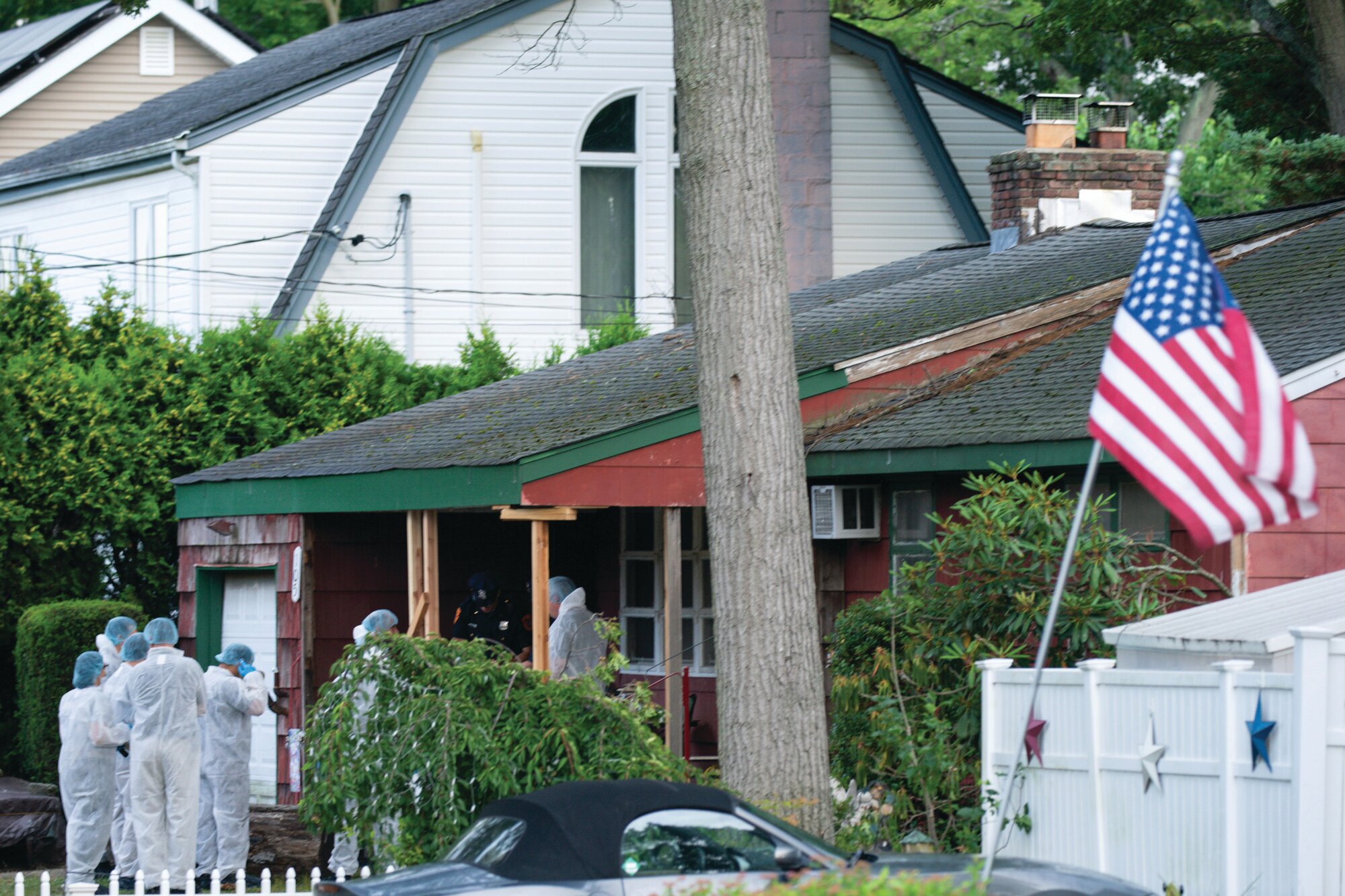Suspect in Long Island's Gilgo Beach serial killings is charged with the death of a fourth woman
RIVERHEAD, N.Y. (AP) — An architect charged in a string of slayings known as the Gilgo Beach killings was accused Tuesday in the death of a fourth woman, a Connecticut mother of two who vanished in 2007 and whose remains were found more than three years later along a coastal highway in New York.
Rex Heuermann was formally charged in the killing of Maureen Brainard-Barnes, months after having been labeled the prime suspect in her death when he was arrested in July in the deaths of three other women.
In court, Heuermann wore a dark suit and did not say anything during the proceedings. He will continue to be held without bail. The judge set the next court date for Feb. 6.
Suffolk County District Attorney Raymond Tierney and other law enforcement officials planned a news conference following Tuesday's court hearing.
Brainard-Barnes, 25, who was once employed as a dealer at the Foxwoods Resort Casino, left her hometown of Norwich, Connecticut, on July 9, 2007, and headed to Manhattan for sex work, with plans to return the following day, according to friends who became concerned when she uncharacteristically stopped using her phone.
She never came back.
Heuermann was arrested July 14 and charged with killing Melissa Barthelemy, Megan Waterman and Amber Lynn Costello, three women who authorities say also were sex workers. Heuermann's lawyer said he has denied committing the crimes. He previously pleaded not guilty to killing Barthelemy, Waterman and Costello.
Brainard-Barnes was the first of the four women to disappear. Their remains were found along the same quarter-mile (400-meter) stretch of parkway in the Gilgo Beach area of Jones Beach Island in 2010. Additional searching turned up the remains of six more adults and a toddler who was the child of one of the victims.
Police concluded that an 11th person found dead in a tidal marsh on the same barrier island accidentally drowned.
Investigators have said Heuermann, who lived in Massapequa Park across the bay from where the bodies were found, was probably not responsible for all the deaths. Some of the victims disappeared in the mid 1990s.
Investigators zeroed in on Heuermann when a new task force ran an old tip about a Chevy Avalanche pickup through a vehicle records database. A hit came back identifying one of those make and models belonging to Heuermann, who lived in a neighborhood police had been focusing on because of cellphone location data and call records, authorities said.
With the tip breathing new life into the investigation, authorities charted the calls and travels of multiple cellphones, picked apart email aliases, delved into search histories and collected discarded bottles — and even a pizza crust — for advanced DNA testing, according to court papers. Detectives said Heuermann's DNA on the pizza crust matched a hair found on a restraint used in the killings.
Police said other evidence linked Heuermann to the victims, including burner cellphones used to arrange meetings with the slain women.
After the arrest, investigators spent nearly two weeks combing through Heuermann's home, including digging up the yard, dismantling a porch and a greenhouse and removing many contents of the house for testing.
More Articles to Read

